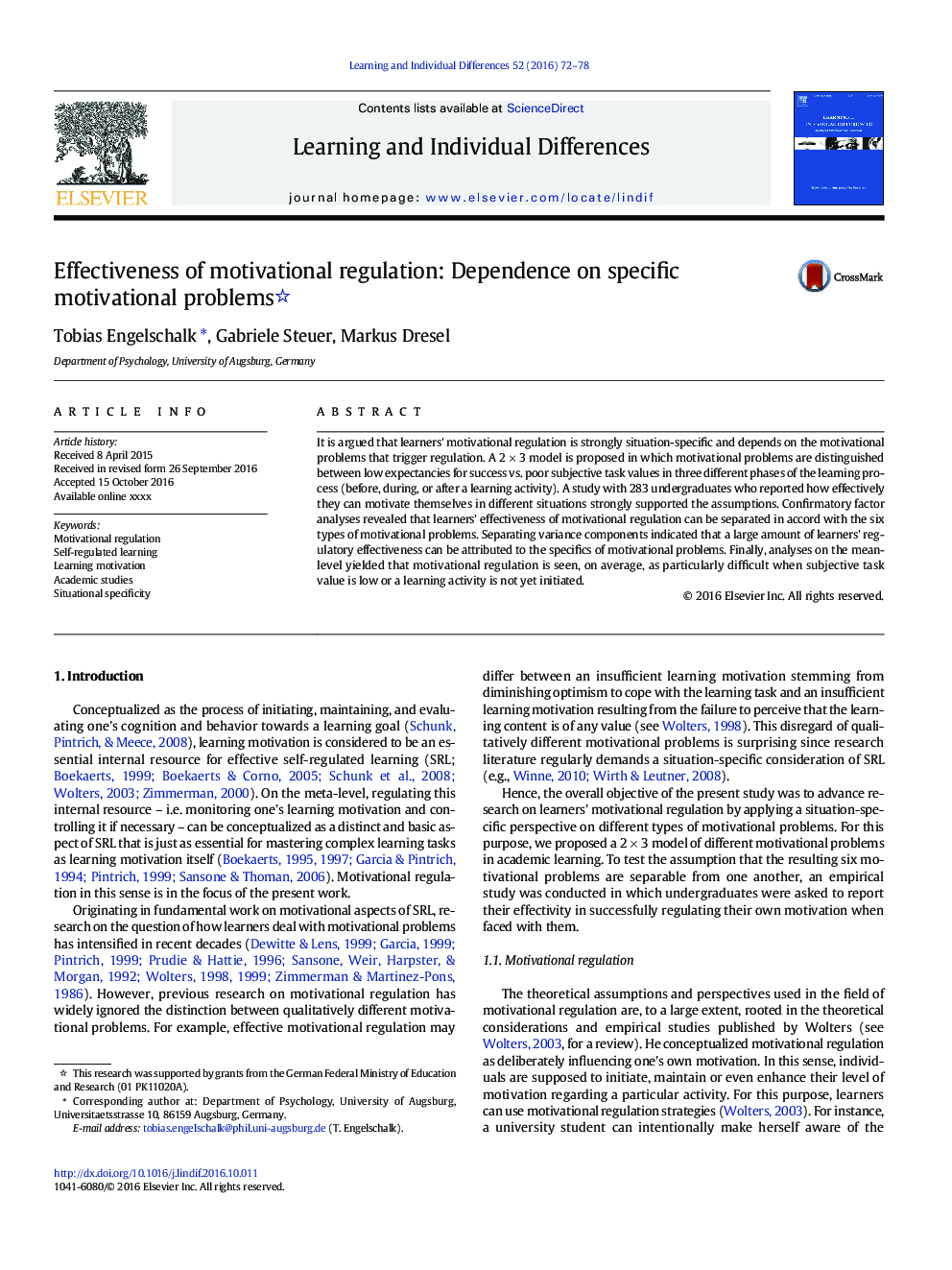| Article ID | Journal | Published Year | Pages | File Type |
|---|---|---|---|---|
| 4940070 | Learning and Individual Differences | 2016 | 7 Pages |
Abstract
It is argued that learners' motivational regulation is strongly situation-specific and depends on the motivational problems that trigger regulation. A 2Â ÃÂ 3 model is proposed in which motivational problems are distinguished between low expectancies for success vs. poor subjective task values in three different phases of the learning process (before, during, or after a learning activity). A study with 283 undergraduates who reported how effectively they can motivate themselves in different situations strongly supported the assumptions. Confirmatory factor analyses revealed that learners' effectiveness of motivational regulation can be separated in accord with the six types of motivational problems. Separating variance components indicated that a large amount of learners' regulatory effectiveness can be attributed to the specifics of motivational problems. Finally, analyses on the mean-level yielded that motivational regulation is seen, on average, as particularly difficult when subjective task value is low or a learning activity is not yet initiated.
Related Topics
Social Sciences and Humanities
Psychology
Developmental and Educational Psychology
Authors
Tobias Engelschalk, Gabriele Steuer, Markus Dresel,
